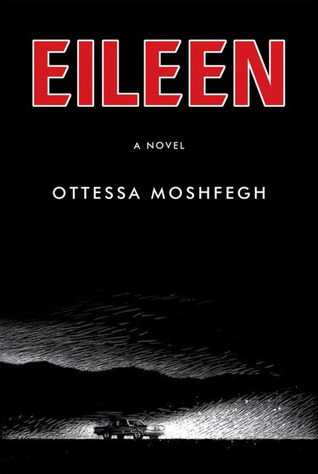Ahem. I’m aware this could’ve been earlier. Technically, this is last week’s post. Or even last to last week. So much for two posts a month here. Well, let’s see how it goes.
My January has been slow. My reading pace has been similar. Also, I’ve started on a non-fiction book which I’m pretty much hating but I’ve kept at it because I’m nearly halfway through and it’d be a shame to give up now. So what else. I’ve apparently read five books in January. Some of them are December spillovers I think, which just makes me look worse. Oh well, less talk, more review. One of them is Plath’s Ariel collection which I won’t go into because I read it very early in the month and also I didn’t do a detailed scan of each poem. The rest, I’m going to get to. These aren’t really reviews as much as discussions, but ‘review’ is fewer letters and I’m very lazy.
1. Carpe Jugulum (Terry Pratchett)
This is another witches’ novel (Discworld #23, Witches #6) and since I don’t usually gravitate towards books which are majorly comedy-based, it’s usually very enjoyable for me. If you’re at all familiar with Pratchett’s witches, Granny Weatherwax, Nanny Ogg, Magrat and Agnes feature again with the usual colourful and peculiar characterisation that everyone loves. They’re going up against vampires though. I find it difficult to review Pratchett’s books from the point of view of a structural or plot-based analysis, but it’s really often just a breath of fresh air and such fun to read his novels. I’m also quite fond of the witches’ characters generally. It was a fun ride, I liked the weird, modern vampires with their aversion to cobwebs and creaks and it’s always great to see a bit of Death. And Greebo. If you don’t read Terry Pratchett, you should definitely consider it (not necessarily this book, but pretty much any one). I’ve got Equal Rites to get through but it’s on the back burner at present.
2. The Body in the Library (Agatha Christie)
Again, not a book one can say a lot about, because everything’s been said. It was a neat mystery, not as great as some of her others, and perhaps a bit heavy-handed with the sexism in this one, but otherwise what you’d expect from a normal Christie mystery. As a child I preferred Poirot to Miss Marple, and I still do, but I figure I’ve not read enough of Marple to have a good argument. I do find that in the few novels I’ve read she tends to act like a peripheral character – I’m not entirely sure how I feel about that because it’s always better to have a familiar character in a crime novel otherwise you feel like you’re dealing entirely in suspects (I mean, not a bad thing if it’s intentional). I prefer the ones where she’s in the short stories but this was an okay read. Not what I’d think of as Christie’s best, though, but that could be because of my Poirot bias…anyway, the title pretty much gives you the crime scene. I won’t really discuss the plot because it’s a pretty slim book and it’s best to go into these cold, I think – Christie’s mysteries are a classic but pretty simple.
3. Things Fall Apart (Chinua Achebe)
Speaking of classics. This was for class; this takes place in an Ibo village in Nigeria and tackles the subjects of gender, culture and change with the coming of the white settlers. I can’t really say I liked or disliked this; I found the incisive recollection of Ibo customs and traditions to be interesting and well described, if simply. The novel deals with the plight of the warrior Okonkwo who has made a name for himself in a patriarchal culture that shows no sympathy for emotion or weakness in men. While this classic wasn’t personally greatly to my taste, there’s no doubt of Achebe’s lasting influence in postcolonial literature, and I’m glad to have read it.

4. Eileen (Ottessa Moshfegh)
I started reading this sometime last year, or maybe even the year before, and never finished it until now. It was shortlisted for the Man Booker in 2016, and is more of an intense character sketch than it is a story. Eileen is, by her own admission, a deeply disturbed young woman whose self-consciousness is so sharp that her observations about her own self alone drive most of the novel. Eileen isn’t really the darkest character ever; her perversions are not really the worst I’ve read of, some of them even seem somewhat common to me. The lens through which she sees herself and reports on it is fascinating. If you like novels for the stories, this probably isn’t for you. The plot isn’t that remarkable, it’s not the best mystery. It doesn’t even start until say the second half of the novel, roughly. If characters interest you, this is more up your alley. But even so, I found the reminiscing to be a little incomplete (the older, wiser Eileen looks back on her troubled youth); one wonders how a person can change so drastically when the writer doesn’t paint in the steps. I wouldn’t say I loved this novel, but it was interesting.
So, yes, my January has been…interesting.
Back soon. Hopefully next week.

